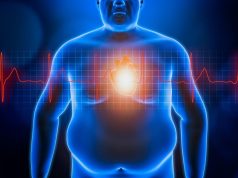MR moderate or greater in severity and severe MR detected with high areas under the curve
By Elana Gotkine HealthDay Reporter
WEDNESDAY, Aug. 28, 2024 (HealthDay News) — An automated pipeline can identify clinically significant mitral regurgitation (MR) among patients undergoing transthoracic echocardiograms, according to a study published online Aug. 12 in Circulation.
Amey Vrudhula, M.D., from Cedars-Sinai Medical Center in Los Angeles, and colleagues used 58,614 transthoracic echocardiograms (2,587,538 videos) to develop a fully automated deep learning pipeline for identifying apical four-chamber view videos with color Doppler echocardiography and detecting clinically significant MR. The model was tested internally on 1,800 studies from Cedars-Sinai Medical Center and externally in a geographically distinct cohort of 915 studies (80,833 and 46,890 videos, respectively).
The researchers found that the view classifier demonstrated an area under the curve (AUC) of 0.998 in the held-out Cedars-Sinai Medical Center test set and correctly identified 3,452 of 3,539 echocardiography videos as having color Doppler information across the mitral valve (sensitivity and specificity of 0.975 and 0.999, respectively, compared with manually curated videos). The view classifier correctly identified 1,051 of 1,055 manually curated videos with color Doppler information across the mitral valve in the external test cohort (sensitivity and specificity, 0.996 and 0.999, respectively). In the internal test cohort, the AUC was 0.916 and 0.934 for detecting MR moderate or greater in severity and severe MR, respectively; in the external test cohort, the corresponding AUCs were 0.951 and 0.969.
“Mitral regurgitation is a common but often missed valvular heart disease. It can be challenging to precisely assess the disease severity, which is critical to know which patients can take a watch-and-wait approach and which should proceed to an intervention,” coauthor David Ouyang, M.D., from the Smidt Heart Institute in Los Angeles, said in a statement.
Several authors disclosed ties to the pharmaceutical and medical technology industries.
Copyright © 2024 HealthDay. All rights reserved.








